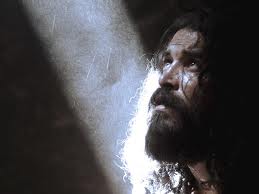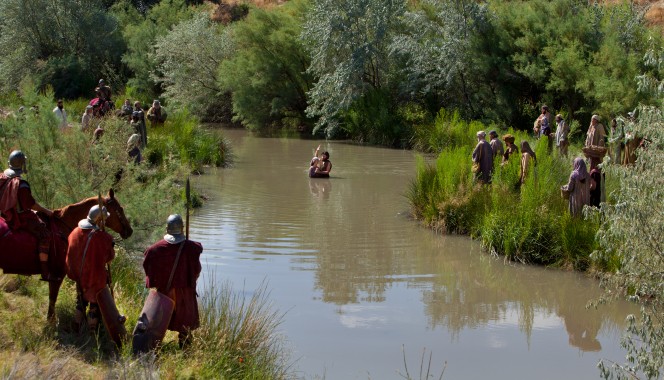“John was a burning and shining lamp, and you were willing to rejoice for a while in his light.
Jesus, of John the Baptist – John 5:35 CSB

The Illustration
The Apostle John makes more references to light in his Gospel than any other New Testament writer.
Job, Psalms and Isaiah in the Old Testament also use the concept to evoke reflection on varying comparisons, as Jesus does in John 6. Here are just a few illustrations from the Hebrew definition, familiar to disciples of both John the Baptist and followers of Jesus.
אוֹר ‘owr – [used 122 times as a noun] means:
Light of day, of heavenly luminaries (moon, sun, stars), day-break, dawn, morning light, daylight, lightning, of a lamp (as Jesus uses here to refer to John the Baptist), of life, of prosperity,
As a teacher with the greater ‘light of instruction,’ Jesus compares Himself to John the Baptist.
John 1: a brief reflection
Although we will not continually return to the beginning of John’s Gospel, it is important for us to understand the Apostle’s perspective as events unfold in the teaching ministry of Christ Jesus.

Just a reminder here that the events of Jesus’ ministry occurred around AD 30 when the Apostle was a young man and John wrote his Gospel [Good News] between AD 70-100 as the only remaining Disciple who had not been martyred for Christ.
John makes many references to light, including many in John 1, as we have already seen in ‘God’s Love Through John: In the Beginning.’
Reflections of the Teacher
John 1:4 In him was life, and that life was the light of men. That light shines in the darkness, and yet the darkness did not overcome it.
John’s reference to Christ Jesus

7 He came as a witness to testify about the light, so that all might believe through him.
John refers to Jesus and the witness mentioned is the teacher, John the Baptist. Then John continues to clarify the difference by restating the comparison of John the Baptist to Jesus.
8 He was not the light, but he came to testify about the light.
The Gospel-writer then unequivocally states that Jesus the Messiah is both ‘the true light’ and the greater light than John. He was coming to the world as the light – a light of hope – for everyone in the world.
9 The true light that gives light to everyone, was coming into the world.
Gospel of John, of the Messiah Jesus
As mentioned earlier, John then proceeds to both explain the role of Jesus and continues to reflect on the relationship of the Prophet of the wilderness, John, to the Messiah.
What John’s Gospel does not say
And there are also many other things that Jesus did, which, if every one of them were written down, I suppose not even the world itself could contain the books that would be written.
John 21:25 CSB
Although we are studying the Gospel of John, it is important for us to put some missing events detailed in other gospels about the life of John the Baptist. So before we proceed with Jesus’ teachings, let’s briefly chronicle a few events of the well-known teacher, John.
Matthew
Matthew, of course, was the other Jewish writer of the gospels who adds additional detail.
In those days John the Baptist came, preaching in the wilderness of Judea and saying, “Repent, because the kingdom of heaven has come near! ”
Matthew states later of Jesus and his reaction to the political events which led to the Baptist’s arrest,
When he heard that John had been arrested, he withdrew into Galilee.
Matthew 4:12
Jesus had been in Judea, but leaves for Galilee and gathers Disciples to Himself. John, no doubt, hears of this and sends some of his own disciples to Jesus with questions from John asking for assurance.
Matthew 11:
Now when John heard in prison what the Christ was doing, he sent a message through his disciples… Jesus replied to them, “Go and report to John what you hear and see:
We will continue shortly from the Gospel of John with the signs they would witness to the Baptist and others.
“From the days of John the Baptist until now, the kingdom of heaven has been suffering violence, and the violent have been seizing it by force. … “Let anyone who has ears listen.
The Messiah Jesus, Matthew 11:12
Later in Jesus’ three-year ministry we learn the fears of Herod about Jesus from Matthew:
At that time Herod the tetrarch heard the report about Jesus. 2 “This is John the Baptist,” he told his servants. “He has been raised from the dead, and that’s why miraculous powers are at work in him.”
The Greater Light
Immediately after John’s most quoted Scripture he testifies to the Messiah’s purpose and mission in Jesus’ own words. Jesus again uses comparisons of light and darkness.
19 This is the judgment:
The light has come into the world,
and people loved darkness rather than the light
because their deeds were evil.
John 3:19
20 For everyone who does evil hates the light and avoids it, so that his deeds may not be exposed. 21 But anyone who lives by the truth comes to the light, so that his works may be shown to be accomplished by God.”
Before we speak of Jesus’ love we must remember repentance. Darkness and evil envelope our lives, yet some love the darkness. Jesus offers love not only to Israel but to the world.
The Gospel of John shows many signs of the Messiah which should be recognizable to the Jews, even though many chose darkness.
Where will you look? Do you have eyes to see?
Do you rely on a lesser lamp or perhaps even live in complete darkness?
John presents signs, evidence and explanation of the Messiah.
Who is your hope?
To be continued...
 Some men have the gift of preaching a message to which others will respond and follow. As we pointed out in our
Some men have the gift of preaching a message to which others will respond and follow. As we pointed out in our 
 43 The next day Jesus decided to leave for Galilee. He found Philip and told him, “Follow me.”
43 The next day Jesus decided to leave for Galilee. He found Philip and told him, “Follow me.”

